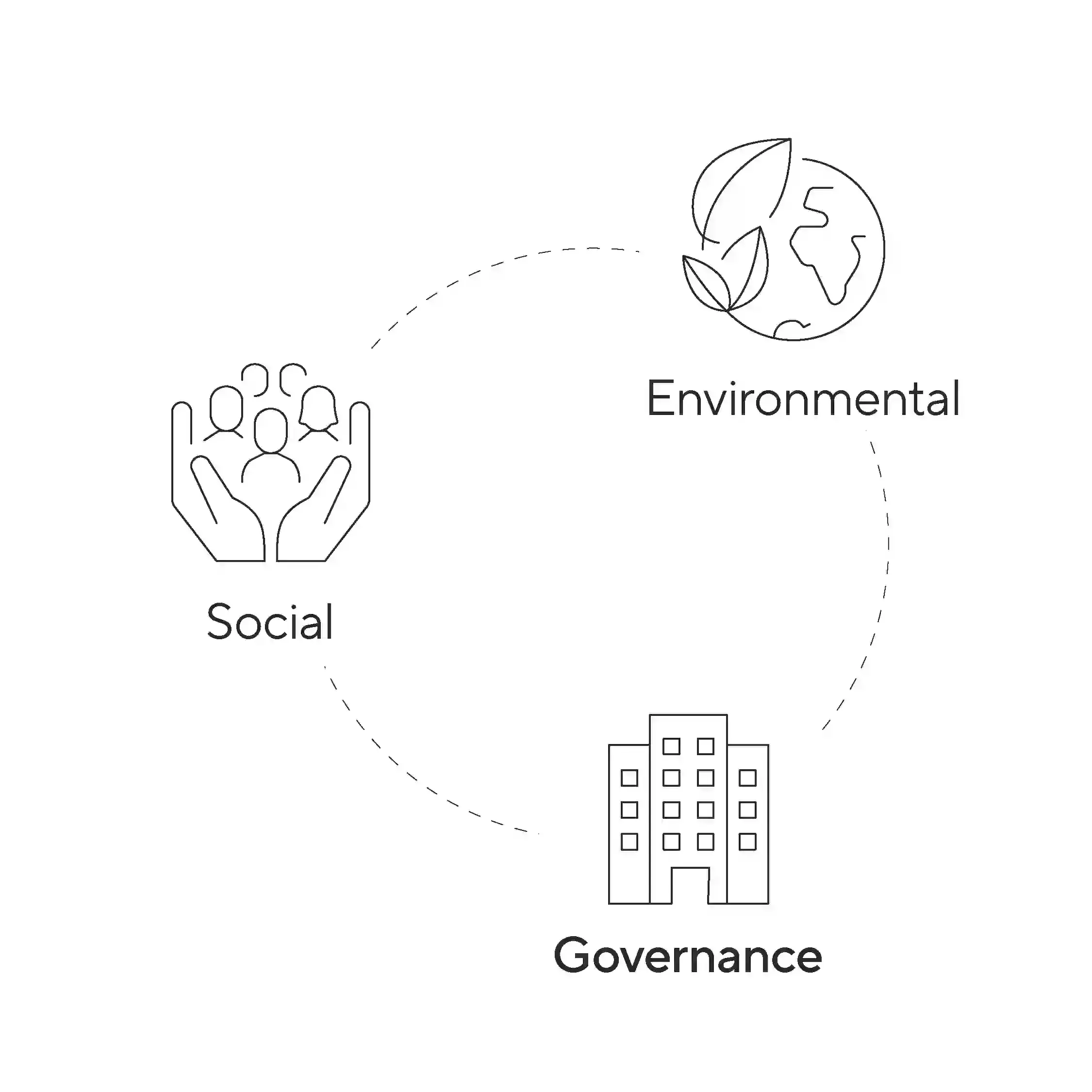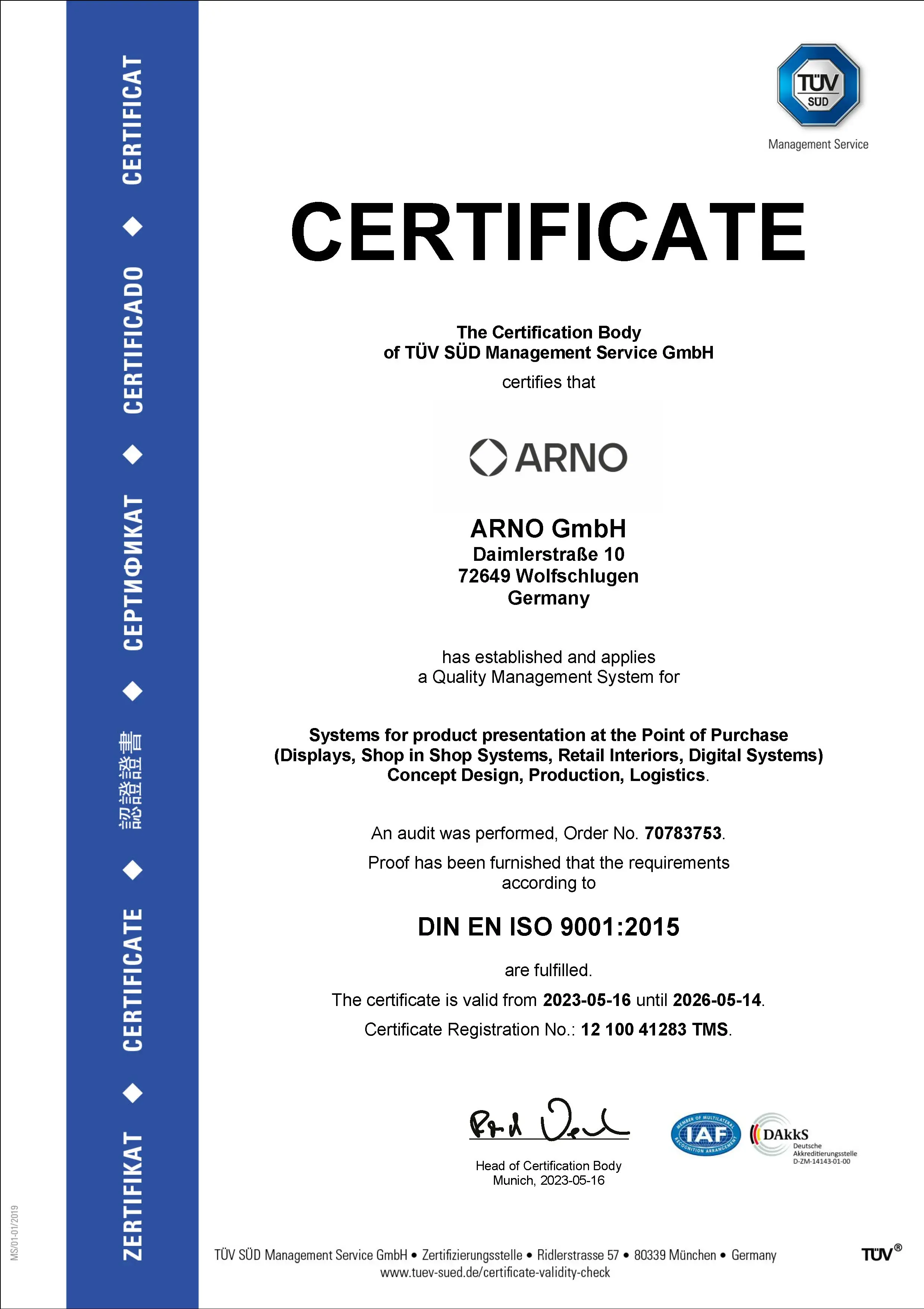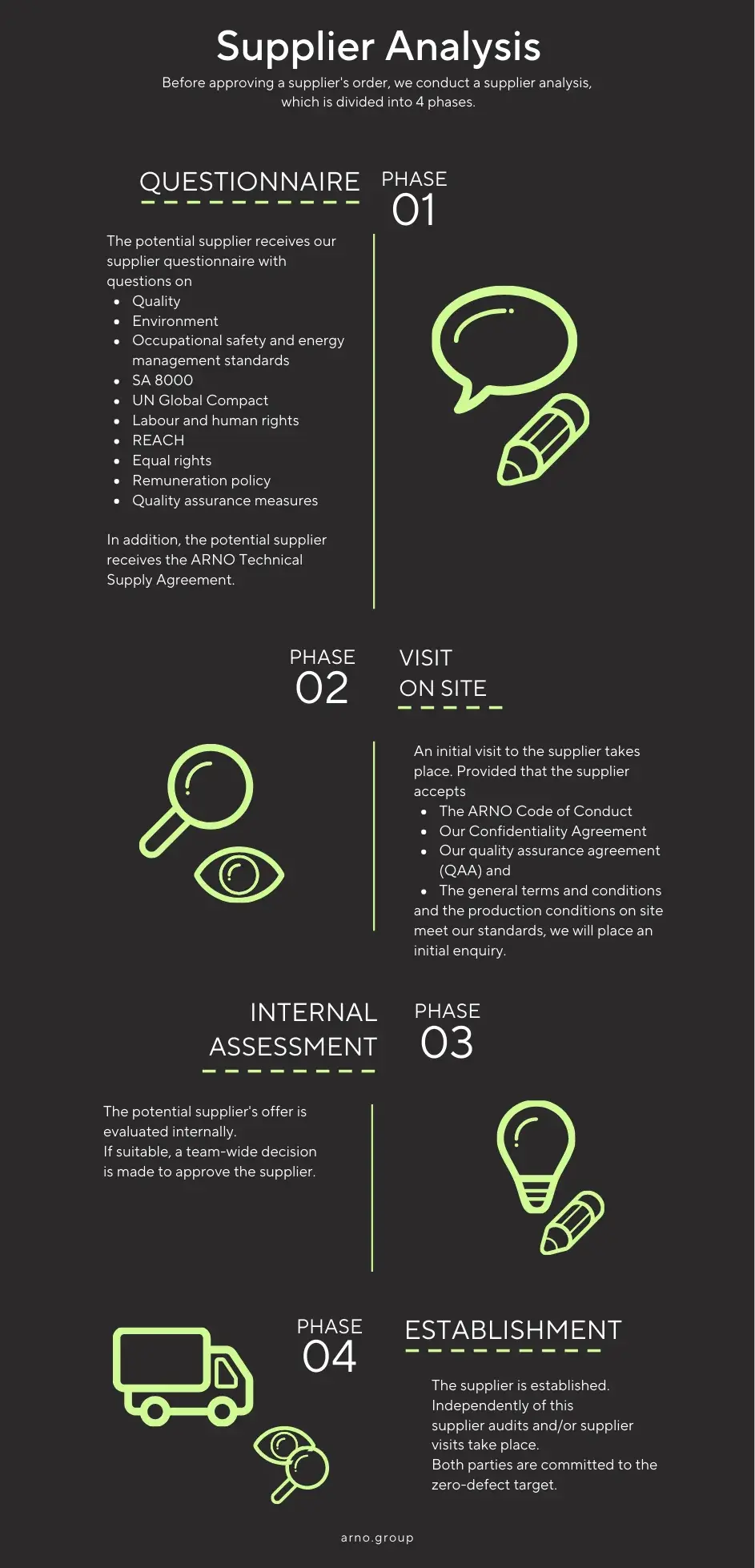The G in ESG stands for Governance.
For us, ethical conduct and lawful action are basic prerequisites for credibility and entrepreneurial success. Our corporate culture is characterised by a sense of responsibility and mutual respect. We want to ensure transparent leadership and ethical decision-making at every level.
Our Code of Conduct supports us in ethical decision-making processes and serious matters can be reported through our Whistleblower Tool.
Guideline Diversity and Inclusion
Quality of products and processes
Governance along the Value Chain: Suppliers
The ARNO Code of Conduct supports us in acting appropriately and reasonably in our daily work as well as in strategic considerations and associated legal or ethical decision-making processes.
A Code of Conduct typically defines fundamental principles for responsible, legally compliant, and ethical behavior.
Our requirement is that all business is legal and ethical. Employees are obliged to strictly adhere to the ARNO Code of Conduct and to actively implement the regulations in an exemplary manner.
It defines binding principles, among others, in the following areas:
- Compliance with laws, regulations and internal policies
- Respect for human and labour rights
- Fair working conditions, as well as health and safety in the workplace
- Environmental and climate protection
- Integrity, anti-corruption measures and fair competition
- Responsible conduct towards business partners and suppliers
- Protection of company assets, data and confidential information
At ARNO, diversity and inclusion mean equal opportunities for everyone - regardless of background, gender, age, or identity. We prevent discrimination and harassment through awareness training and clear reporting channels (trusted contact and whistleblower tool).
We actively foster a respectful workplace where everyone feels safe, valued, and able to contribute.
At ARNO, we work according to the DIN ISO 9001 requirements and have been certified since 2008.
We attach great importance to the quality of our products, to sustainable management and to fair working conditions. This is confirmed not least by the independent audits that take place regularly.
Our integrated quality management system documents all work and operating instructions, codes of conduct, evidence and responsibilities. In the area of occupational health and safety, it serves as a know-how tool. All integrated documents are always up to date and all employees are informed about changes.
We have a broad supplier network. To ensure compliance with our standards along our supply chain, we have developed a supplier analysis in 4 phases.
- Initial screening (questionnaire)
A potential new supplier receives a questionnaire and must confirm compliance with labour and human rights requirements as well as sustainability standards. - Verification and Code of Conduct commitment
If all requirements are confirmed in writing, we obtain an overview of the situation on site. Suppliers who refuse to sign our Code of Conduct, or where violations are identified, are not included in our supplier base.
- Trial order and internal evaluation
If requirements are met, an initial enquiry is placed. During the internal evaluation, the team decides whether the supplier is included in our network based on delivered quality and cooperation (communication and adherence to delivery dates). - Ongoing monitoring (audits and visits)
Regular audits and/or visits are conducted for all suppliers to ensure that standards and quality are maintained over time.
We have set up a Whistleblower Tool in order to be able to follow up on indications of violations appropriately and fairly. Our primary goal is to avoid risks that could damage our company, our employees and our business partners.
A whistleblower tool is a system that enables employees and external parties to report potential violations safely, confidentially, and responsibly.
Purpose of the Tool
We have established a whistleblower tool to ensure that reports of potential misconduct are handled appropriately, fairly, and in a structured manner. Its primary objective is to identify risks at an early stage and prevent harm to our company, our employees, and our business partners.
Reportable Violations
We encourage all individuals within and outside the ARNO Group who observe or become aware of misconduct to report it openly and without fear of retaliation. Reportable violations may include, but are not limited to:
- Corruption or money laundering offenses
- Violations of human rights
- Breaches of environmental regulations
- Violations of technical requirements, standards, or internal policies
Protection of Whistleblowers
Whistleblowers are comprehensively protected. All reports are treated confidentially, and no individual will suffer disadvantages as a result of submitting a report. Detailed information on whistleblower protection can be found in our Anti-Corruption Policy.
As a (voting) member of the BAUM Association, we are committed to the BAUM Code of Conduct for Sustainable Management and ensure its implementation.
BAUM e.V. is committed to sustainable, socially responsible and economically viable business practices. Founded in 1984, the association now has over 850 members.



